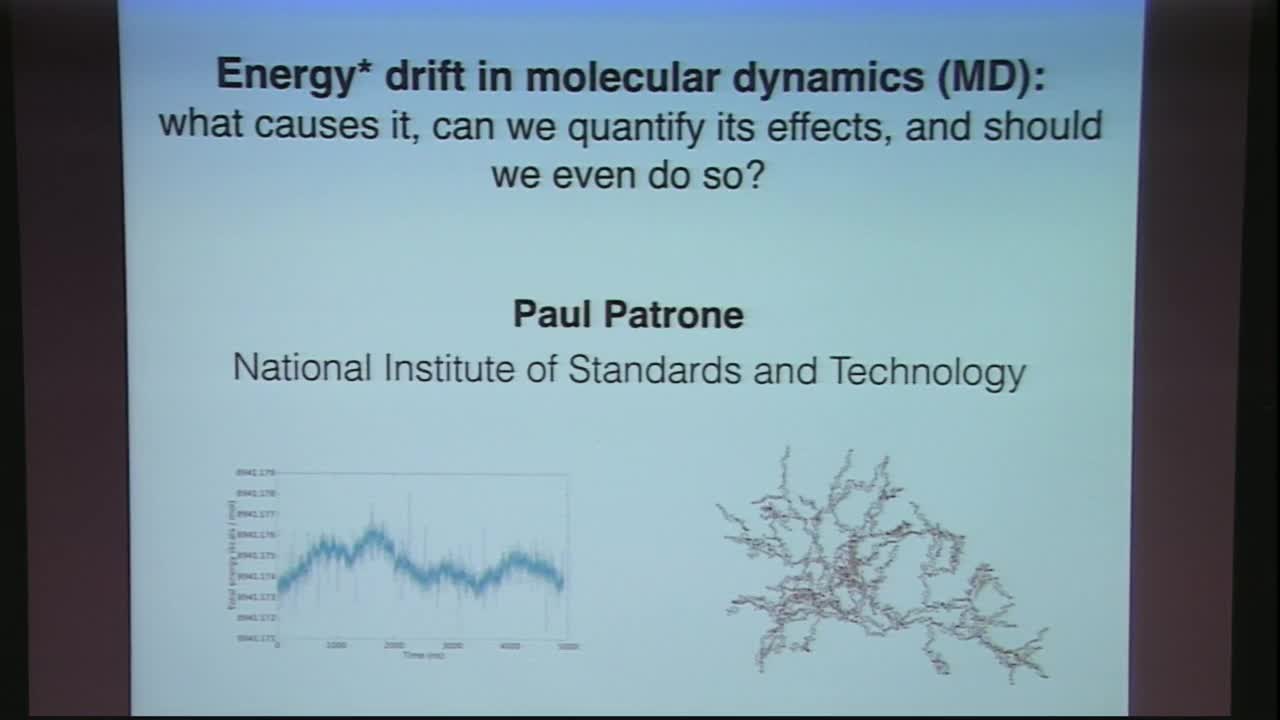Energy Drift in Molecular Dynamics Simulations: What causes it, can we quantify its affects, and should we even try?
Presenter
February 24, 2016
Keywords:
- Molecular Dynamics, Energy Drift
Abstract
One of the key observations underpinning the theory of molecular dynamics (MD) is the formal mathematical result that discrete time-stepping, symplectic integrators conserve energy. From the standpoint of model verification, this property is crucial if MD algorithms are to describe the statistics of thermodynamic systems. Nonetheless, practical implementations of MD always exhibit some level of energy drift, and it is not clear to what extent this affects simulated predictions. Often this drift is attributed to causes such as roundoff error and poor approximation schemes in compiled codes. Complicating these arguments, however, is the observation that an asymptotically derived “shadow Hamiltonian” may be the true conserved quantity, not the Hamiltonian associated with the MD forcefield. Thus, many open questions remain regarding practical methods for determining the origins of energy drift, quantifying its effects on simulated predictions, and even assessing when MD algorithms should obey conservation laws. In this talk, I will highlight these issues in more detail and point to applications where energy drift could have potential impacts on industrial problems.
